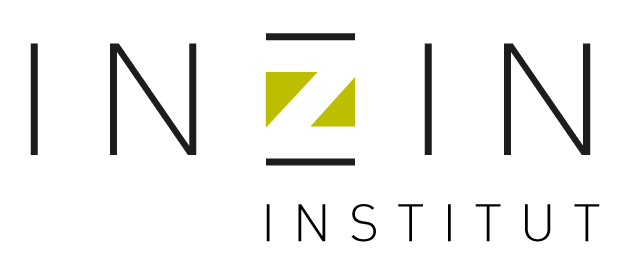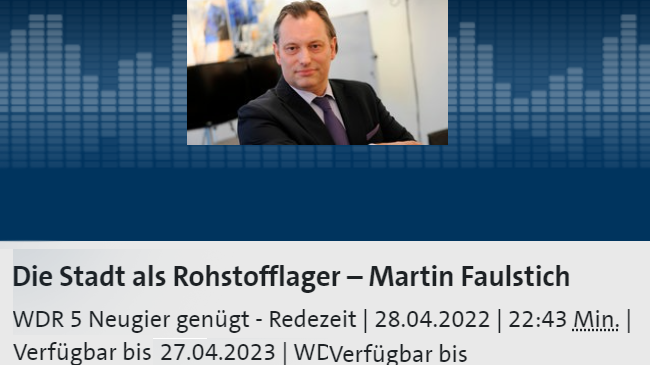Prof. Dr. Martin Faulstich on WDR 5 Talk
The city as a raw material store
In view of increasingly scarce raw material reserves, the only option left is to recycle existing resources. Cities in particular have enormous potential in this area. Prof. Martin Faulstich from TU Dortmund University knows how urban mining works.
Dortmund.
In times of raw material shortages and climate change, it is essential that we use our resources more efficiently. Prof. Martin Faulstich from the Technical University of Dortmund has been conducting research in this field for decades. One of the main areas of focus for the process engineer is what is known as urban mining. This involves using all recyclable materials (glass, aluminium, paper, etc.) in a city, as well as old buildings, rails and appliances, as a kind of mine for raw materials.
According to estimates, over 80 per cent of the world’s population will live in urban areas by 2050. Extracting all the raw materials these people need from scratch would have an enormous impact on the climate. That is why Prof. Faulstich has been advising politicians and companies on recycling and sustainability as an ‘environmental expert’ for more than ten years.

